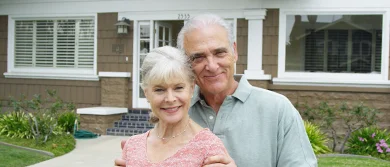Tag: home loan

You’re over 50. You have built up a lot of equity in your home, and your life savings is finally gaining some critical mass. And yet, your odds of being rejected for a refinancing mortgage start going up rapidly after age 50 and really accelerate around 70, according to a study by Natee Amornsiripanitch at…

Paying off the mortgage frees up a lot of money for other things. The homeowners in one study splurged on big-ticket items. Older homeowners, however, are adding another priority: medications. After a mortgage payoff, workers and retirees ages 50 to 64 spent 50 percent more on prescription drugs in a comparison with households who had…



